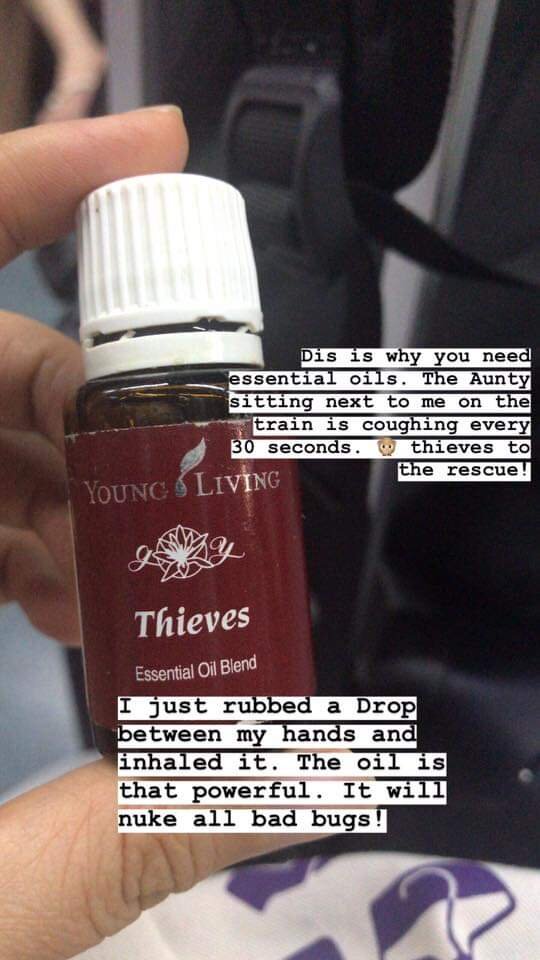Multi-Level Marketing and the Boss Babes Left Behind
Visual by Amery Sandford
Now more than ever, the pressure is on to find your “side-hustle.” The COVID-19 pandemic continues to flourish around the world, affecting many industries and – consequently – prospects for employment. Under these conditions, working for YOU is a form of survival. If you can dream it, you can do it – and if you can do it, you can probably make money off of it.
Entrepreneurship is everywhere you look – free time has turned into hobbies, and hobbies turned into small businesses. That is not to say that every small business is thriving. On the contrary, government support has developed for the businesses facing diminished revenues with ongoing costs of rent and labour. But if your hustle speaks to the right niche and employs a strong digital strategy, the possibilities are endless.
When it comes to small business, multi-level marketing (MLM) companies are not an obvious example. The business itself is not inherently “small,” but rather the distributors that find their way into personal networks. They are friends, mothers, and high school classmates you haven’t talked to in six years. They are working people looking to supplement their income, and those unemployed or between jobs who want to be their own boss.
A direct message sent to the author last month
And that’s what everyone wants at a time like this, right? To do business and profit on our own terms, in such a way that’s compatible with our lifestyles. There is nothing wrong with wanting to pay rent and feed your family. There is nothing wrong with supporting small businesses and creators when they are most vulnerable. It is not the “side-hustle” as a concept that presents the problem, but the craftiness and deceit of multi-level marketing companies.
The truth is, multi-level marketing is an incredibly predatory practice. These businesses perpetuate false narratives of prosperity and exploit the boom of girl-bossery when, in reality, both the distributor and the customer are sold a vision they cannot realize. This is especially important to remember in the context of the COVID-19 pandemic: people have lost work and need solutions, making the current climate a perfect opportunity for the MLM to strike.
Multi-level marketing companies are related to the pyramid scheme, insofar as distributor recruitment makes up a good deal of operations – often more than the sales themselves. Daryl Koehn, a professor of business ethics at DePaul University, makes a careful distinction between MLMs and pyramid schemes, for at least MLMs actually have a product to sell. But when distributors must purchase inventory that they cannot sell, the line between pyramid scheme and MLM is easily blurred.
Across multi-level marketing, the most popular companies tend to specialize in beauty, health and wellness. Companies like Avon and Mary Kay have built international reputations off of their cosmetics. Monat promises to give you the hair of your dreams. Arbonne and It Works! sell smoothie mixes and serums to make your body beautiful, inside and out.
These brands have gained notoriety across social media, relying on mommy groups and message requests to push products that will totally change your life. The distributor role is promoted in a similar fashion, as an emancipatory experience that will provide for your family and work with your lifestyle. The Avon lady of yesteryear who showed up at your door is now the momtrepreneur living her best life and letting you know via Instagram. These companies have also grown as the concept of self-care becomes more important to society. Taking care of your body and self-image has become a way to cope with external anxieties.
And so, with the pandemic forcing many women to stay home and many others out of work, the largest MLMs have only continued to grow. In their recruitment, these companies and their networks play off of pandemic-related fears, offering a safe and sanitary working experience. One Arbonne distributor posted that, while others were freaking out over unemployment, “... [she was] just over here hanging out, building [her] germ free multi-million dollar global business from home." When the $600 stimulus cheque was released, Monat distributors complained that they’ve been ghosted for showing women how to make $600 “every month.” But is it really that simple? Is the MLM entrepreneur lifestyle some golden ticket that we are seemingly dodging out of ignorance?
A sample from the “work with me!” forms that MLM distributors will advertise.
This offer sounds too good to be true mainly because it is. Positive experiences with multi-level marketing networks are highly individualized and promoted as universally attainable in order to maintain a steady flow of further distributors. When you successfully recruit someone, you are then entitled to a portion of their proceeds as commission or a bonus. The most successful distributors have the most distributors under them, which makes the endless search for others an essential aspect of the business. Not everyone can be the “regional vice president” with a free company car (that is not actually free at all) – in these cases, either everyone they know is using MLM products, or everyone they know has been sold the #bossbabe fantasy.
So unsuspecting women believe that the anomaly is accessible, and are sold a promising vision. To facilitate the recruitment process, many MLMs have milked the growth of pop feminism in their marketing. Given that 75% of MLM distributors around the world are women, their empowerment is used as a tool of coercion. This works as a determining factor for others to join the cohort and make profit for the initial recruiter, typically at the expense of their own economic security. For example, MLM inspo accounts routinely use hashtags like #bossbabe, #girlboss, and #momtrepreneur, and the companies themselves extend similar mottos into branding.
This strategy targets more specific groups as well. With the pandemic continuing to put women out of work, this “boss babe” messaging specifically targets lower-income women. Did you just get fired, with hungry mouths to feed and a mortgage to pay? There is a way to “get rich” right in front of you … What are you waiting for? Consider the distancing measures and women’s feelings of isolation from social opportunities. For women who live alone, or stay-at-home mothers helping their children through virtual school, this side-hustle is also poised as a network of genuine female friendship.
Looking at the numbers, these endeavours hardly pan out, and end up creating further problems for the women they supposedly uplift. One study conducted by the Consumer Awareness Institute found that 99% of MLM distributors end up losing money. This makes sense when you consider the cost of entering the business – starter kits and monthly stock can cost hundreds of dollars, which will come out of the distributor’s pocket. What’s more, many like-minded social circles have exhausted their options for further recruitment. You cannot recruit someone who is already part of the business, so the first friend to recruit will be making better profits than those in their downline. In these circumstances, “female friendship” has some serious limitations.
Inspiring slogans like this one are often used to connect the MLM to women’s empowerment. Merchandise via Mom Life Gear
Given the over-saturation of these markets, distributors must deceive in order to actually turn a profit. If they have run through their personal networks – which is a common situation – they must rely on the other side of profit-making: the product sales. Across many different companies, there are products that have kept customers coming back. But when distributors feel the pinch, they will jump on trends to boost their sales.
This has become a huge problem during the pandemic, as many wellness distributors are exploiting public fears and deliberately promoting misinformation in order to keep afloat. The Federal Trade Commission (FTC), an independent agency of the United States government, has sent at least 10 warning letters to different MLMs (including Arbonne and doTERRA) since the beginning of the pandemic for their false claims about health benefits.
Young Living’s Thieves line of essential oils has also been promoted for “antiviral properties.” When contacted about these claims, a spokesperson for YL asserted that this was misinformation, and that this form of marketing is prohibited. But because MLMs operate with a highly decentralized structure, those who spread lies will likely go undisciplined.
This distributor – and many others – have taken to sweeping claims about product capabilities in order to turn a profit. Retrieved from r/antiMLM
Although many of us purchase products from other sources, or are well-informed on the dangers of multi-level marketing, the fact of the matter is that these companies continue to grow. Even if this is an avenue you’d never consider for yourself, MLM distribution may be something that impacts your unsuspecting relative or friend.
Fortunately, platforms are taking action – a recent update to TikTok’s community guidelines included new policy against content related to multi-level marketing and pyramid schemes. But new strategies will emerge, and this problem is far from over. MLM companies will only get bigger as major crises and their accompanying recessions develop over time. They will only get bigger as the virtue of girl-bossery becomes further manipulated for capitalist gain, as something to aspire to with no room for critique.
Entrepreneurship is admirable and side-hustle businesses may hold potential for financial support, but only when they are built off of solid foundations. Multi-level marketing has the power to create further amounts of debt and destroy personal relationships. Nobody is immune to these damages.



































